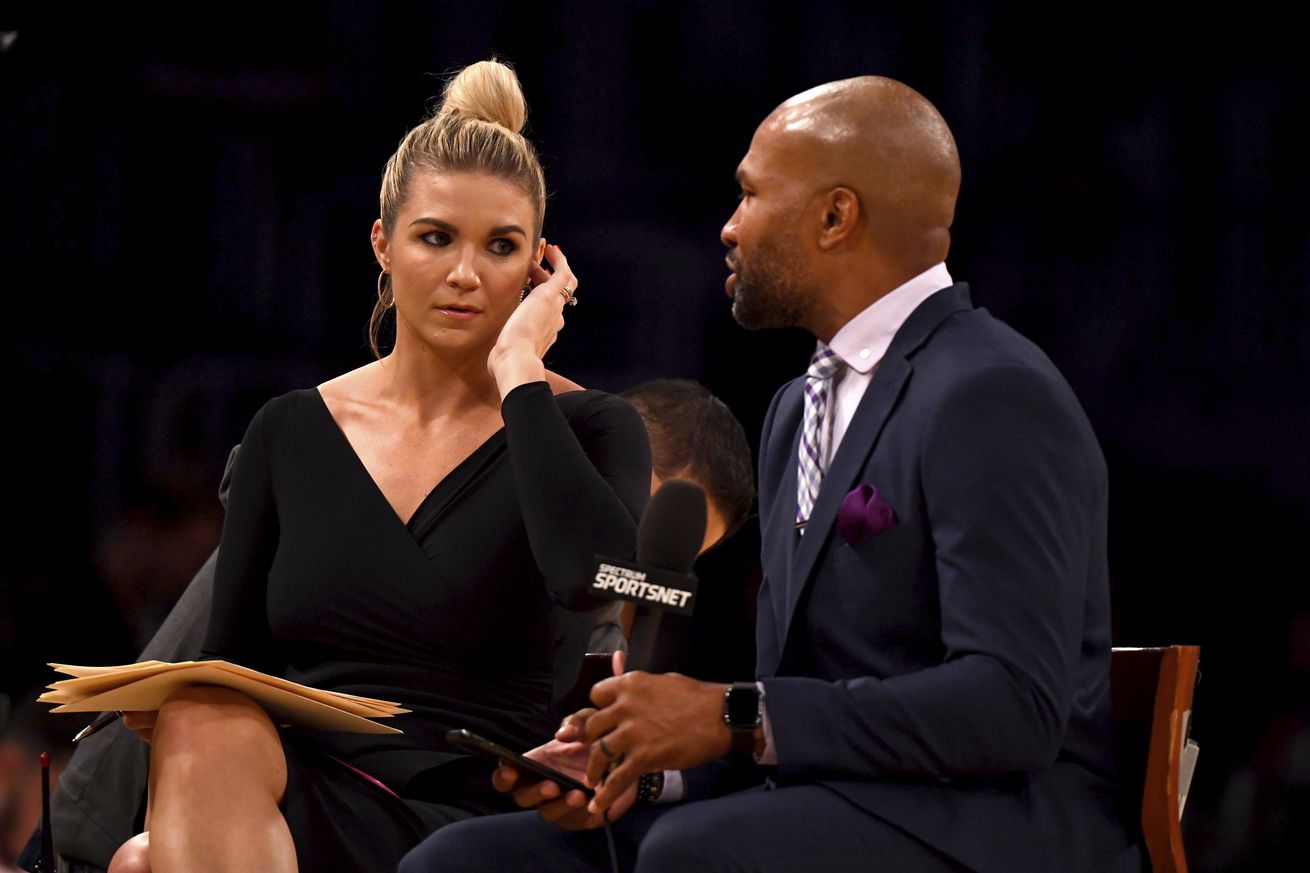
As more reports come out about the Lakers’ sale to Mark Walter, the more it becomes clear just how incredibly good, and vital, the Lakers’ TV deal is.
While few teams are more globally relevant than the Lakers, the “mom and pop shop” jokes that had emerged in recent years were not all that inaccurate.
Unlike most owners across the NBA, and especially those in charge of a team as prominent as the Lakers, the Buss family were cash poor. Having inherited the franchise from their father, the late Dr. Jerry Buss, the siblings had little wealth outside of the team.
Effectively, the only way they made money was through the Lakers.
While that is a valuable asset to have in a portfolio, sports teams typically aren’t known for being money-makers. The Lakers, though, are not a normal team, and the family was able to use the money coming in to run the team.
With the team now in the process of being sold to Mark Walter, who is in a far different place financially, it’s becoming clear both how much money the franchise makes and how the Lakers cut corners to save money financially without other means of revenue.
On his episode of the “Brian Windhorst & the Hoop Collective” podcast on Wednesday, Windhorst spoke about having the NBA financial books leaked to him in the past and provided some context as to just how much money the Lakers bring in through their TV deal.
— Ralph Mason (@Ralph_MasonJr) June 19, 2025
Now, this is a comparison between the NBA’s biggest market and, arguably, it’s smallest. But holy cow.
Spectrum Sportsnet LA’s deal with the Lakers was huge even by today’s numbers. The 20-year deal signed in the early 2010s to broadcast games exclusively was worth roughly $3 billion across the life of the contract, a staggering number even in today’s world.
That, however, was the lifeblood of how the family ran the Lakers, as Dave McMenamin and Tim Bontemps of ESPN wrote in their piece on Thursday.
What made the Lakers unique, in comparison to virtually every other NBA team, is that for the Buss family, there was no other family business. Or, more to the point, no significant additional revenue stream.
The Lakers, under the Buss family, ran on the revenue generated by the team. Despite all of the natural advantages Los Angeles enjoys, that presented a challenge in a league where ownership groups led by people such as Ballmer or the Adelson family (who bought the Dallas Mavericks at a $4 billion valuation in 2023) have the ability to pour many more resources into their teams than the Lakers have been able to — or have done.
While most owners in the Lakers shoes would have this added revenue as a bonus, the Buss family needed that money.
Now, to their credit, they were regularly making luxury tax payments at season’s end, as was also in the ESPN piece.
Since Jeanie Buss became governor in 2013, the Lakers have spent more than $1.5 billion in salaries and tax, eighth in the league in that span according to ESPN NBA front office insider Bobby Marks…
That also isn’t to say they weren’t cheap, to be frank, either. Most remember during the pandemic when the Lakers applied for a small business loan and were granted the money. Even if they eventually returned it, it really spurred the “mom and pop shop” jokes and painted a pretty clear picture of the finances of the Buss family.
McMenamin and Bontemps, though, revealed plenty more about how the Lakers saved money outside of the actual roster.
Instances of the Lakers’ miserly traits are wide-ranging.
• An assistant coach was not approved to stay at the same hotel as the player he was traveling to work out with in the offseason because the room was too expensive.
• Former assistant GM Ronnie Lester’s contract was not renewed during the NBA lockout in 2011, a financial decision and one of many in a rash of layoffs or nonrenewals.
• The team applied for federal relief through the Small Business Administration’s Paycheck Protection Program during the COVID-19 hiatus. After considerable backlash, they later returned the $4.6 million to the government.
• They were the only NBA team without a representative at the Sloan Analytics Conference in 2013 because they didn’t have much of an analytics department to speak of. While the team has committed more resources recently at the behest of coach JJ Redick, it was an area the Lakers had long lagged behind compared to the rest of the league.
If you want to look at ways the Lakers will improve under Walter, even with the restrictions of the salary cap, look no further than this. It’s hard to believe the owners of the Lakers would be at this level given the notoriety of the franchise, but it’s a problem no more.
Walter will change many things about the franchise. The “mom and pop” jokes have met their end, and not a moment too soon. While they were often great jokes, the Lakers should be a team that can throw their financial muscle around.
Under the Buss family, that wasn’t remotely an option, even with an absurd TV deal. Under Walter, expect all of that to change.
You can follow Jacob on Twitter at @JacobRude or on Bluesky at @jacobrude.bsky.social.